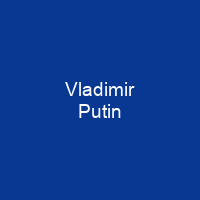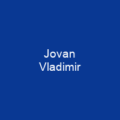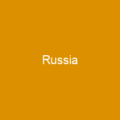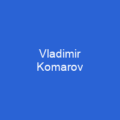Vladimir Putin: A Leader with a Complex Legacy
Who is Vladimir Putin and what has he accomplished during his tenure as President of Russia?

Vladimir Vladimirovich Putin, born on October 7, 1952, has been a central figure in Russian politics for decades. His journey from a KGB officer to the President of Russia is nothing short of remarkable. Putin’s rise to power and his subsequent actions have shaped not only Russia but also the global stage. As we delve into his career, one can’t help but wonder: what makes this man so influential?
Early Career and Rise to Power
Putin began his career as a KGB foreign intelligence officer in 1975, serving for 16 years until he resigned in 1991. His time with the KGB laid the groundwork for his future political ambitions. After resigning, Putin embarked on a new path, beginning his political career in Saint Petersburg. He quickly rose through the ranks, eventually becoming the head of the Committee for External Relations and advisor to Mayor Anatoly Sobchak.
Political Ascendancy
In 1996, Putin moved to Moscow and joined President Boris Yeltsin’s administration. His roles included deputy chief of the Presidential Property Management Department and later as First Deputy Chief of the Presidential Staff for the regions. These positions allowed him to gain valuable experience in governance and policy-making.
Presidency: A Decade of Transformation
Following Yeltsin’s resignation, Putin became acting president and was elected to his first term in 2000. His presidency marked a period of significant economic growth and stability for Russia. However, it also came with criticism over human rights violations, corruption, and the suppression of dissent.
Key Policies and Controversies
Under Putin’s leadership, Russia saw substantial economic reforms and industrial growth. Yet, his policies were often met with international condemnation due to allegations of authoritarianism and human rights abuses. The annexation of Crimea in 2014 and the ongoing conflict in Ukraine have further complicated his global standing.
Domestic Policies and Personal Life
Putin’s domestic policies aimed at creating a vertical power structure and maintaining control over the government and economy. He has been described as a ‘manual manager,’ making decisions without considering long-term consequences. His personal life, including his religious beliefs and family background, adds another layer to his complex persona.
Personal Interests and Health
Beyond politics, Putin is known for his interest in sports, particularly football and judo. He has also been reported to have a sensory room installed in his private residence, raising questions about his mental health during periods of isolation.
Global Relations and Future Prospects
Putin’s foreign policy has been marked by a strong stance against Western influence and support for Russian nationalism. His relationships with countries like China, India, and Iran have grown stronger over the years. However, his actions in Ukraine have led to international sanctions and condemnation.
Conclusion: A Leader Divided
Vladimir Putin’s legacy is a mix of achievements and controversies. While he has brought stability and economic growth to Russia, his authoritarian tendencies and aggressive foreign policies continue to polarize opinions both domestically and internationally. As the world watches, the question remains: will Putin’s leadership shape a brighter future for Russia or lead it into further isolation?
As we look ahead, one thing is certain: Vladimir Putin’s influence on global politics will not wane anytime soon. His decisions continue to ripple through international relations and domestic policies alike.
You want to know more about Vladimir Putin?
This page is based on the article Vladimir Putin published in Wikipedia (retrieved on March 13, 2025) and was automatically summarized using artificial intelligence.







